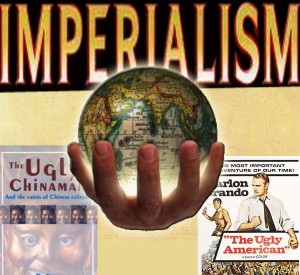(People’s Daily Online)
One country in Asia is a regular source of problems. One might ask whether it fears being overlooked. That country is the Philippines.
Playing hardball with China
On July 15 a spokesperson from the Philippine Department of Foreign Affairs (DFA) said that China’s unequivocal stance on the South China Sea dispute, requiring that recognition of China’s sovereignty over the South China Sea be the premise of any negotiations, made it impossible for Manila to conduct any further negotiations with China.
At the same time that the Philippines has blocked the pathway to negotiations with China, it has thrown open its doors to the U.S., a country towards which Manila is happy to extend the greatest confidence.
The Philippine government pointed out on July 13 that U.S. president Obama has warned China not to resort to arms or other threats in resolving maritime disputes with neighboring countries. Although the spokesperson for the Philippine president did not specify that Obama’s attitude was intended to support the position of Manila, he stressed that the Philippines shared the same stance with the U.S.
There is an important factor behind the tough stance currently being promoted by Manila – internal pressure. When he assumed power Benigno Aquino III made commitments to fight against corruption and poverty, and offered guarantees of reform. But faced with the high unemployment rate, the frequent occurrence of natural disasters, and little to show by way of political progress, the Philippine people are rapidly becoming disillusioned. Manila needs to find an “enemy” to distract the people’s gaze.
Currying favor with the U.S.
Under the American policy of “rebalancing” in the Asia-Pacific region, former U.S. defense secretary Leon Panetta announced last year that the U.S. would deploy 60 percent of its military forces in the area. This year the current U.S. defense secretary Chuck Hagel has confirmed that 60 percent of U.S. air force and Marine Corps would be deployed in this region, and announced that distribution of advanced weapons will be made a priority.
This strategic adjustment delights the Philippines, which already considers itself an ally of the U.S. and is more than happy to play the role of its pawn.
The U.S. is now in discussions with the Philippines over an agreement allowing the extension of military bases and a rotating complement of forces. The agreement will also permit U.S. soldiers to stay longer in the Philippines and station themselves in Philippine military bases.
The Philippines has long maintained close military ties with the U.S. The Philippines relies on U.S. military protection. Two thirds of Philippine military spending is financed from the rental revenues of its military base leased to the U.S. When the Philippines restarted its arms programs, sourcing from the US became its first choice. Many of its second-hand F-16 fighters and retired Hamilton-class cutters were imported from the U.S.
It is therefore clear that the Philippines is determined to do everything it can to facilitate the U.S. “rebalancing”.
Disorient
However, in contrast to the perceived advantages of these maneuvers, reality is somewhat less accommodating. Manila seems to be out of step with its own people.
The negotiations with the U.S. have triggered a lively discussion in the Philippines. More and more people are opposed to the agreement. Many senators are worried that opening military bases will damage their national interests. Much of the media is saying ”no” to military bases, sensitive to national sentiment and the lessons of history. Academics have pointed out the problems that the U.S. military base is likely to cause.
The increasing U.S. military presence is accompanied by much that is neither positive nor beneficial: according to the former head of the Philippine Department of Foreign Affairs (DFA) rubbish is being dumped in the seas over the Philippines, coral reefs are being damaged, and there is the unexplained appearance of U.S. drones in the country’s air space.
The Philippines is at risk of becoming isolated in the international community.
Although the Philippines makes frequent play of its “importance” as a pawn, the U.S. has made it clear that it takes no side in the South China Sea issue. This means that no matter how closely the Philippines stands by the U.S., the latter will not rashly dispatch troops over issues of sovereignty and territory.
Just as its own academics have observed, Manila should not always take its stance from the U.S. The country should develop diplomatic policies that are independent and based primarily on its own long-term interests.
Read the Chinese version: 菲律宾“狐假虎威”瞎折腾, source: People’s Daily Overseas Edition, author: Zhang Hong
